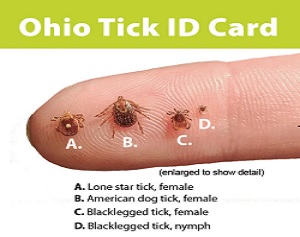
Mary Alice Reporting – New Philadelphia City School was among three other entities to get grant money to focus on environmental education.
The Ohio Environmental protection Agency awarded more than $162,000 to the four recipients, who applied under different projects.
For New Philadelphia High School, they’re getting $31,177 for the purpose of engaging students and teachers in research experiences that look at the ecological factors that regulate black-legged tick populations.
With summer getting underway, Ohioans are reminded to take steps to minimize contact with tickets, such as tucking pants into socks or boots and shirts into pants to keep ticks on the outside of clothing. Using a repellant, says CDC Research Biologist Dr. Rebecca Eisen, is another prevention measure with the substance containing 20 to 30 percent DEET.
“After coming indoors, do a tick check and any ticks that you identify you remove promptly to prevent the likelihood of the tick having the ability to transmit any of the pathogens that it’s carrying. You can also tumble dry your clothing at high heat to try to kill any ticks that are still on your clothes but most importantly, make sure you do the tick checks. Check yourself, your children, your outdoor gear, your pets.”
For Ohio, there are three main species, the American dog tick, black-legged tick, and lone star tick and all three have the potential to transmit diseases to humans and pets, with the highest risk of contraction between June and August.
When out in nature, people and pet owners should conduct a thorough check for the insect and if one is attached, use tweezers or gloved hands, grasp the tick as close to the skin as possible, and pull straight out with steady, even pressure.
Copyright WTUZ Radio Inc., 2022